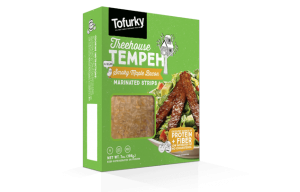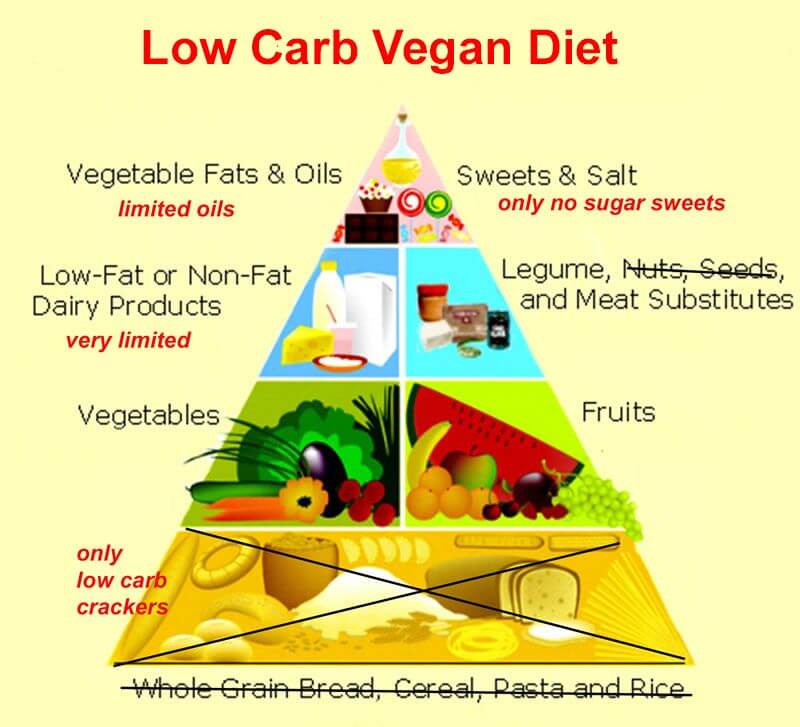Vegan Protein Sources
It is important for vegans and vegetarians to obtain enough protein in their diets to enable their bodies to function properly. This is possible when one consumes a sufficient variety of plant-based foods within a day and meets minimum caloric requirements. On a reduced-calorie diet, you must be more careful in choosing the right vegan protein sources. Additionally, we lose some variety with the exclusion of animal and animal-derived products.A complete protein contains the 9 essential amino acids that the body cannot synthesize. That means they must be consumed in one’s diet. These amino acids are phenylalanine, valine, threonine, tryptophan, methionine, leucine, isoleucine, lysine, and histidine. We typically obtain these by consuming meat, because all meats are complete proteins. There are vegan protein sources that contain all of these amino acids, such as Quinoa, Buckwheat, Chia Seeds, Pumpkin Seeds, Soy, and Spirulina.
While the theory of protein combining (mixing complimentary incomplete protein sources to obtain complete proteins) may no longer be relevant for plant-based diets in general, reduced-calorie diets are a different story. On weight loss diets, you are eliminating certain foods that cause weight gain. In some cases, removing these foods can cause gaps depending on your dietary requirements or preferences. This will not be an issue for most dieters. However, there is still the issue of variety. To stick with your diet, it’s not only important to be properly nourished, it’s essential that you don’t get bored or feel deprived.
Meat Alternative Vegan Protein Sources
Below we provide a list of products that are vegan (and a couple vegetarian) meat substitutes. They provide both the protein you need to stay healthy and feel full, as well as the flavor you need to stay engaged with your diet plan.
Vegetarian and Vegan Boca Burger Products
Original Vegan
The Original Vegan Boca Burger contains 70 calories, 5 of which are calories from fat. There is 0.5g of total fat, none of which is saturated fat. It contains no cholesterol, 260mg of sodium, 6g of carbohydrates, 4 of which come from fiber and 13g of protein. In addition, this burger patty provides 6 percent of the recommended daily value of calcium and 10 percent of the recommended daily value of iron. This one of the vegan protein sources we recommend.
All-American Flame Grilled
The All-American Flame Grilled Boca Burger contains 120 calories, 45 of which are calories from fat. There is 5g of total fat, 1.5g of which is saturated fat. It contains 5mg of cholesterol, 380mg of sodium, 6g of carbohydrates, 5 of which come from fiber and 14g of protein. In addition, this burger patty provides 15 percent of the recommended daily value of calcium and 10 percent of the recommended daily value of iron.
Grilled Vegetable
The Grilled Vegetable Boca Burger contains 80 calories, 10 of which are calories from fat. It contains no cholesterol, 300mg of sodium, 7g of carbohydrates, 4of which come from fiber and 12g of protein. In addition, this burger patty provides 6 percent of the recommended daily value of calcium and 10 percent of the recommended daily value of iron.
Textured Vegetable Protein (TVP®)
TVP is made from 50% soy protein/soy flour or concentrate, but can also be made from cotton seeds, wheat, and oats. It is produced from soy flour after the soybean oil has been extracted, then cooked under pressure, extruded, and dried. TVP® has a long shelf-life if stored properly and is an excellent source of protein and fiber. It is made into chips, flakes or chunks. TVP® contains absolutely no meat or meat byproducts, so it’s perfect for those who are on strict vegetarian diet. TVP® can be purchased flavored with beef, chicken, sausage and ham. One half cup dry TVP® = 80 calories, 0g fat, 3g sugar, 13g protein, and 7g total carbs.
Tofu and Soy Products
First used in China around 200 B.C., tofu has long been a staple of Asian cuisine. Tofu soaks up flavors and is best when marinated for at least 30 minutes or served with a flavorful sauce. There are two types of tofu that you’ll want to try:
- Fresh, Water-Packed Tofu (always refrigerated): Best for when you want the tofu to hold its shape, such as when baking or grilling
- Silken Tofu: Packed in aseptic boxes and usually not refrigerated.
Try firm or extra-firm tofu for baking, grilling, sauteing, and frying and soft or silken tofu for creamy sauces, desserts, and dressings. To give tofu a meatier texture, try freezing it for 2 to 24 hours and then defrosting it. Press the water out of the tofu prior to preparing it. Wrap the tofu in a towel and set something heavy on top of it for at least 20 minutes, and it will be ready for marinades, sauces, freezing, and cooking.
You may have tried tofu and soy milk before, but what about edamame, soy ice cream, soy yogurt, soy nuts or soy cheese? TVP® and tempeh are also protein-rich soy foods. As an added bonus, many brands of tofu and soymilk are fortified with other nutrients that vegetarians and vegans need, such as calcium, iron and vitamin B12. Protein content: A half-cup of tofu contains 10 grams, and soy milk contains 7 grams of protein per cup.
 Tempeh
Tempeh
This traditional Indonesian food is made from fermented soybeans and other grains. Unlike tofu, which is made from soybean milk, tempeh contains whole soybeans, making it denser. Because of its density, tempeh should be braised in a flavorful liquid for at least one hour prior to cooking. It’s actually similar to a very firm veggie burger, and, like tofu and seitan, it’s quite high in protein and can be prepared in a myriad of ways, making if perfect for vegetarians and vegans.
Protein content: Varies by brand, but as a guideline, one serving of tempeh (100 grams) provides about 18 grams of protein (that’s even more protein per gram than tofu!) Tempeh is a great alternative for folks who don’t like tofu.
Seitan
The protein portion of wheat (gluten) is used to make Seitan. It replaces meat in many recipes. Seitan works so well that a number of vegetarians avoid it because the texture is too “meaty.” When simmered in a traditional broth of soy sauce or tamari, ginger, garlic, and kombu (seaweed), it is called seitan. Others simply call it gluten. Commercially made mixes include Arrowhead Mills’ Seitan Quick Mix or any of the Knox Mountain products, which include Wheat Balls, Chicken Wheat, and Not-So- Sausage as well as White Wave and Lightlife Foods.
Ener-G® Egg Replacer™ (an egg substitute for recipes)
Ener-G® Egg Replacer™ is made from non-animal sources. It replaces eggs for those on the vegan diet or those who cannot have eggs. Ener-G® Egg Replacer™ greatly simplifies baking and allows you to enjoy a variety of delicious egg-free baked goods. While not nutritionally the same as eggs, it does mimic what eggs do in a baking recipe. It works best in recipes made from scratch. However, it will not make scrambled eggs. Ener-G® Egg Replacer™ may work well in some pre-made commercial mixes, but not in all of them.
It is made from Potato Starch, Tapioca Flour, Leavening (Calcium Lactate, Calcium Carbonate, Cream of Tartar), Cellulose Gum, and Modified Cellulose. It is 100% egg-free (contains NO eggs nor animal protein), it is also gluten-free, wheat-free, casein-free, dairy-free, yeast-free, soy-free, tree nut-free, peanut-free, sodium-free, cholesterol-free, and it’s low in protein. 1- 1/2 teaspoons of dry Ener-G® Egg Replacer™ plus 2 tablespoons of warm water equals one egg. Mix thoroughly before adding to the recipe. One replaced egg contains 15 calories, 0g fat, 5mg sodium, 4g carbohydrates, 0g sugar, 0g protein.
The Vegg – Vegan “Egg Yolk” Mix
The Vegg Vegan Egg Yolk is a 100% plant-based egg yolk replacement containing only natural ingredients and 0g fat. For 2-3 yolks, simply mix 1 teaspoon of The Vegg with 1/4 cup of water in a blender and blend until smooth. Then, use the mixture as you would traditional eggs. You can use it in any recipe that calls for egg yolks such as soups and dressings. It also makes delicious tofu scrambles.
Vegetarian & Vegan Cheese
Cheese can be made with or without rennet (which is derived from the stomach tissue of a slaughtered calf). This discussion is about those cheeses made without the use of rennet. Today, more and more cheeses are made with “microbial enzymes”, which are widely used in the industry because they are a consistent and inexpensive coagulant. The term “microbial enzyme” means it is a synthetically developed coagulant. The term “vegetable rennet” means it is derived from a vegetable source. Soft cheeses such as cream cheese and cottage cheese are manufactured without rennet. Some cottage cheeses, however, may contain gelatin which is derived from animal sources. Read all labels carefully. While this may not be one of the best vegan protein sources, cheese is the one food missed the most by vegans.
Brands include Daiya, Chao, Vegan Gourmet, Follow Your Heart, Galaxy Nutritional Foods (Veggie Slices), GO Veggie, Kite Hill, Tofutti, and Parma!

